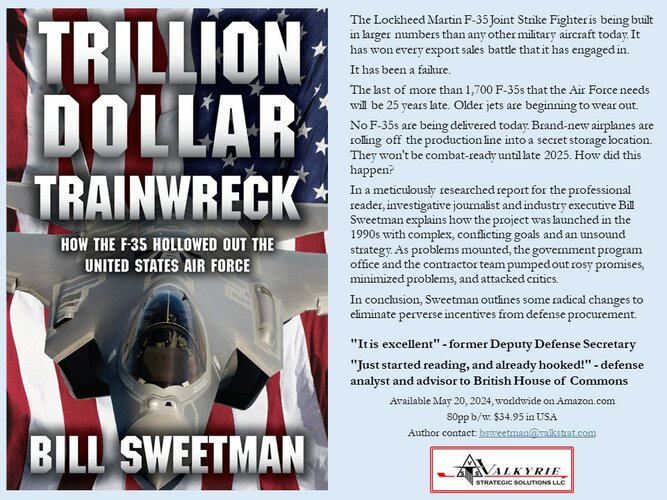Hits in the heart.
And let us remember the justifications for the truncation of F-22, to wit: China would have no LO aircraft in 2020 and a handful in 2025, and the F-35 would be available soon, almost as capable, and half the cost. (Gates 2009, Chicago and Fort Worth.)
And who was quite happy to lose 150 F-22s if it bolstered the case for 3,000 F-35s?
LockMart's favorite think-tank proprietor, that's who.
"Reports of a potential delay in the program due to technical challenges appear to be groundless [O rly? - Ed.]
, and F-35 really is central to future joint warfighting plans in a way that the more expensive F-22 fighter was not."
And as anyone with half a brain could tell at the time, the F-35 was far from healthy. But that was all the more reason to kill off any alternatives.


